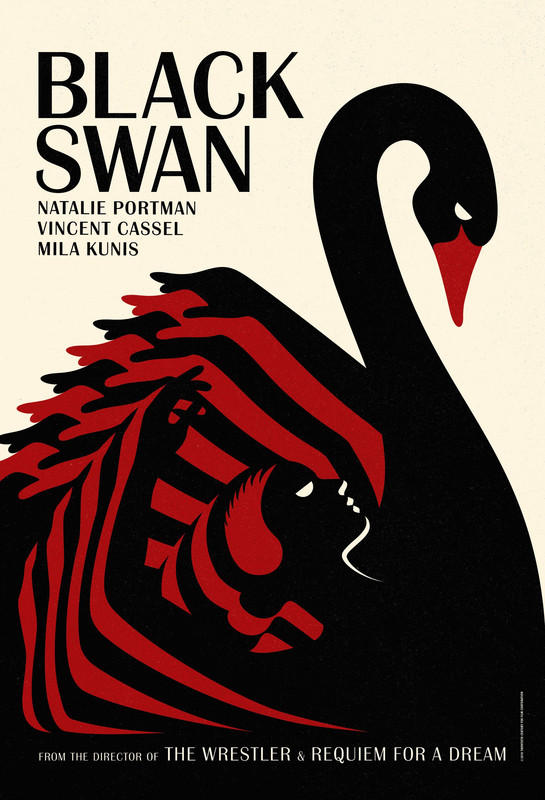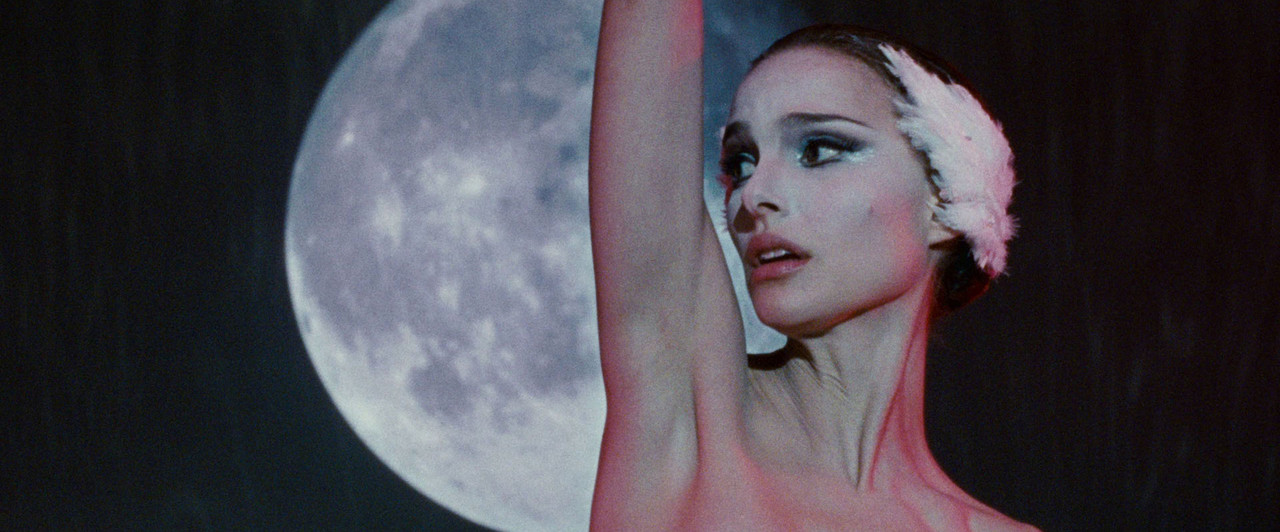Dir: Darren Aronofsky
I’m used to being the odd one out. I don’t do it on purpose. I don’t set out to take down popular or successful movies and, so we’re clear about this, every single time I sit down to watch a film I am willing it to be great. So it was with a rather heavy heart that I exited Black Swan, knowing that I was, again, about to be the odd one out.
I sometimes wonder if I’ve actually seen the same film as other people have reviewed, and certainly, that’s the case here. Several reviews have already claimed Black Swan as the film of the year, more have suggested that Natalie Portman’s name should just be engraved on the Best Actress Oscar right now, and for the entire 103 minutes that it ran I sat there thinking that surely this wasn’t the film that prompted those comments, that there must have been some sort of mix up.
The story focuses on Nina Sayers (Portman), a featured dancer with a New York based ballet company, who is elevated to the starring role in Swan Lake when long term principal dancer Beth (Winona Ryder) is forced to retire. As Nina tries to embody the two sides of her role; the innocent White Swan and the seductress Black Swan, she begins to have disturbing visions, and to fear that new dancer Lily (Mila Kunis) is plotting to steal her role.
I have only one thing - that I know of - in common with Darren Aronofsky; we both love Satoshi Kon’s anime psychological thriller Perfect Blue. Aronofsky has often spoken of his desire to remake that film in live action, and though it is not as marked as the trailer made it seem, that much better film is an obvious and heavy influence on Black Swan. It is present in the central questions of the film; whether Nina’s demanding new role is driving her mad, whether she is literally becoming that role and whether her rival Lily is real or a symptom of her psychosis. There are also several shots that echo Perfect Blue, most notably the first time we see Lily (or is it Nina’s reflection?), which is a direct visual quote of Kon’s film. That said, this isn’t the live action remake that Aronofsky has been pitching, rather it feels as though he’s taken Perfect Blue and Powell and Pressburger’s masterpiece The Red Shoes, added a large dollop of melodrama, shoved them in a blender and hit frappe.
One area in which Black Swan does excel is its design and photography. The film is often mindblowingly beautiful, and Aronofsky’s shots, though I often found their symbolism groan inducingly simplistic (yes Darren, we’re getting the idea of Nina’s split personality, now that’s enough shots in mirrors, thanks), are often inventive and gorgeous in and of themselves. The treatment of the dance sequences is also striking, with the film putting us right on stage rather than positioning us (as Powell and Pressburger did) as an audience. There’s some especially good use of POV towards the end of the film, giving us a real feel for Nina’s disorientation.
The big problem with Black Swan is that the film that surrounds these beautiful visuals (and the exceptional, eclectic, cast) is shrill melodrama near its worst. The script can be so generic and on the nose, especially when dealing with near caricatures like Nina’s controlling mother (Barbara Hershey) and faded star Beth MacIntyre (Ryder, in a performance so overblown it’s comical). Because the tone is so operatic at times I never managed to believe in the characters or the events in the story. Performance wise, scenery is chomped left right and centre. Few have so complete a meal as Winona Ryder, but Hershey and Vincent Cassell are almost equally guilty.
Natalie Portman gives probably the best performance in the film, but she’s by no means great and, though she’ll likely get one, an Oscar nomination would be laughably misplaced. Like the rest of the cast she telegraphs a lot, to the point that it’s laughable that the people around her don’t notice sooner and with more urgency that there’s something very wrong. To give credit where it’s due though, she works hard and her dance sequences, which she appears to have done almost entirely herself, are often stunning. Mila Kunis has much less to do than the trailer might suggest. Lily is supposed to be Nina’s mirror image (Black Swan to Nina’s White), but she’s only very loosely defined and Kunis is a rather one-dimensional bad girl.
Ever since this film was first announced, fans have been drooling at the prospect of a much talked about lesbian scene between Portman and Kunis. There is good news and bad if you’re going to Black Swan for that moment. The scene is rather fetching and it gets pretty hot and heavy. However, that’s no compensation for its utter redundancy in the film. There’s no reason for it to be there aside from the fact that it’s titillating, it seems to me more like a publicity grab than an actual contribution to the film.
It’s not so much that Black Swan is an awful film; it’s just that the combination of elements didn’t work for me. I can see what Aronofsky is reaching for here, and I can see that there might be a good film in it if it were more dialled back, less operatic in tone and more concerned with the psychology of Nina. At the end of the day, rather than recommending that you see this film, I’d suggest that you log on and add The Red Shoes and Perfect Blue to your Netflix queue, and then have yourself a double bill. You’ll have a not dissimilar experience (outside of seeing Natalie Portman and Mila Kunis make out), but by the end you’ll have seen two masterpieces rather than one disappointment.
★★☆☆☆



I agree with you, I though "Black Swan" was overrated and melodramatic... although definitely creepy! Several people walked out of the theater at the screening I went to tonight.
ReplyDeleteAgreed. I saw it last night and was disappointingly underwhelmed. The movie made me feel absolutely nothing.
ReplyDeleteI wrote a review here regarding split personality.Check it.
ReplyDeletehttp://forumserver.twoplustwo.com/63/lounge-discussion-review/movies-what-have-you-seen-lately-part-2-a-585945/index520.html